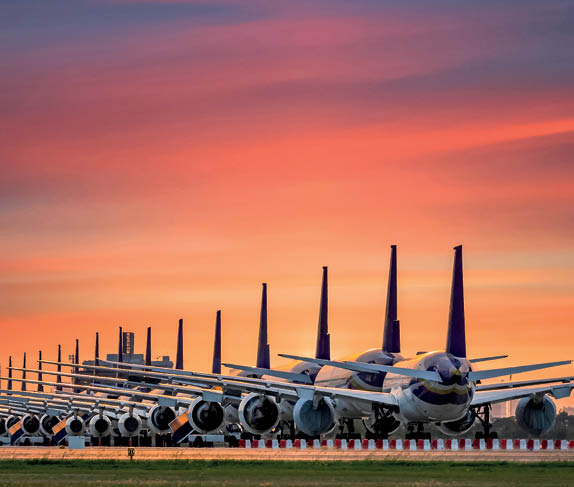The major parties standing in the UK General Election have released their manifestos, with each party mentioning aviation to varying degrees.
The Conservative party manifesto promises support for the ""growth and decarbonisation of our aviation sector"".
""We will back British Sustainable Aviation Fuel through our SAF mandate, an industry-backed revenue support mechanism and investment in future aviation technology. We will support domestic flights including through Public Service Obligations, protecting vital routes within the UK, including to islands and remote areas”.
Commenting on the aviation measures announced in the Conservative manifesto, launched on Tuesday (June 11), Karen Dee, chief executive of the Airport Operators Association, the trade body for UK airports, said:
“We are pleased to see a number of positive measures in the Conservative party’s election manifesto, including continued support for the sustainable aviation fuel mandate and price support mechanism, ruling out a frequent flyer levy and focus on planning reforms to speed up infrastructure delivery.
“Ensuring airports can make best use of existing facilities to deliver sustainable growth will help boost the economy while enabling us to meet our decarbonisation targets.
“It is disappointing, however, that there is nothing about modernising the UK’s airspace, which would deliver real benefits in terms of noise, air quality and sustainability, as well as arrivals duty-free and tax-free shopping, that would demonstrate the UK is open for business.”
The Labour party also has plans for aviation and SAF in their manifesto, saying: ""Labour will secure the UK aviation industry's long-term future, including through promoting sustainable aviation fuels, and encouraging airspace modernisation"".
Dee also commented on the Labour manifesto, saying: “We are pleased to see Labour commit to supporting sustainable aviation fuel and airspace modernisation, though more detail of just how they will do so is required. It is also welcome that there are no planned increases in aviation taxes or measures designed to restrict demand.
“It is important that airports can make best of use of their facilities however, the planning system often holds back infrastructure projects aimed at supporting economic growth, so it is positive that Labour has committed to ensuring it meets the needs of the modern economy. Further detail will be required, however, to see what the party would do in government.
“We would have liked to see more policies aimed at encouraging visitors to come to the UK, for business and leisure, including arrivals duty-free, tax-free shopping and changing the rules around transit passengers requiring an ETA"".
The Liberal Democrats and Green Party have multiple policies about aviation, with many of them similar between the two.
The parties would aim to implement a “frequent flyer levy”, with a higher rate of tax to “focus on those who fly the most, while reducing the costs for ordinary households”,
Under the Lib Dems, airlines would be required to “show the carbon emissions for domestic flights compared to the equivalent rail option at booking”, alongside banning short domestic flights where a “direct rail option taking less than 2.5 hours is available for the same journey.”
The Green Party agree with this policy, and have a similar policy in their manifesto, with a difference of banning all flights that could be replaced with a 3 hour train journey.
Both parties also put forward policies opposing the “expansion of Heathrow, Gatwick, Luton, Stansted or London City airports and any new airport in the Thames Estuary”.
In their manifesto released on July 17, 2024, Reform UK makes no mention of aviation or the aviation industry.
UK Election manifestos on aviation

